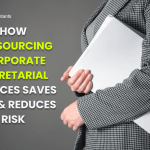In Singapore, many companies may find themselves dormant at some point—either because they have paused operations or are holding companies without active business activities. While being dormant might suggest less hassle, there are still important tax filing obligations to be aware of.
What is a Dormant Company?
The Inland Revenue Authority of Singapore (IRAS) defines a dormant company as one that has no income and carries out no business activities during the entire financial year. This classification is critical because it determines the company’s filing requirements.
Tax Filing Requirements for Dormant Companies
Despite having no business activity or income, dormant companies are generally required to file their Corporate Income Tax Returns (Form C-S, C-S (Lite), or C) annually. The filing deadline is November 30 each year. Failure to file can result in penalties, even if the company did not trade or generate income.
However, if a company truly meets the dormant criteria and has not incurred any expenses or transactions, it may apply to IRAS for a waiver from filing the tax return. It’s important to note that this waiver is not automatic and must be approved by IRAS.
Expenses and Maintenance for Dormant Companies
Even dormant companies might incur certain routine expenses such as bank fees, corporate secretarial fees, or accounting charges. These transactions must be properly recorded, and tax returns filed accordingly.
Ensuring Compliance with Dormant Company Reporting
To assist dormant companies in staying compliant, companies can prepare a Dormant Management Report. This report provides a simplified Profit & Loss statement and Balance Sheet reflecting minimal activities like maintenance fees and capital movements. Such reporting ensures transparent records and smooth tax filing.
Summary of Key Points:
-
A company is dormant if it has no income and no business activities throughout the year.
-
Dormant companies generally must file Corporate Tax Returns annually by November 30.
-
Waivers from filing may be granted by IRAS but require approval.
-
Any expenses incurred during dormancy must be recorded and reported.
-
Preparing a Dormant Management Report helps maintain compliance and transparency.
For more details, companies should refer to the official IRAS webpage: IRAS Dormant Companies
If you run a dormant company, understanding these tax filing requirements can save you from penalties and unnecessary complications. Check out our website at https://ebos-sg.com/ to explore more articles and discover how our Cloud Accountant Services can support you on your business.







